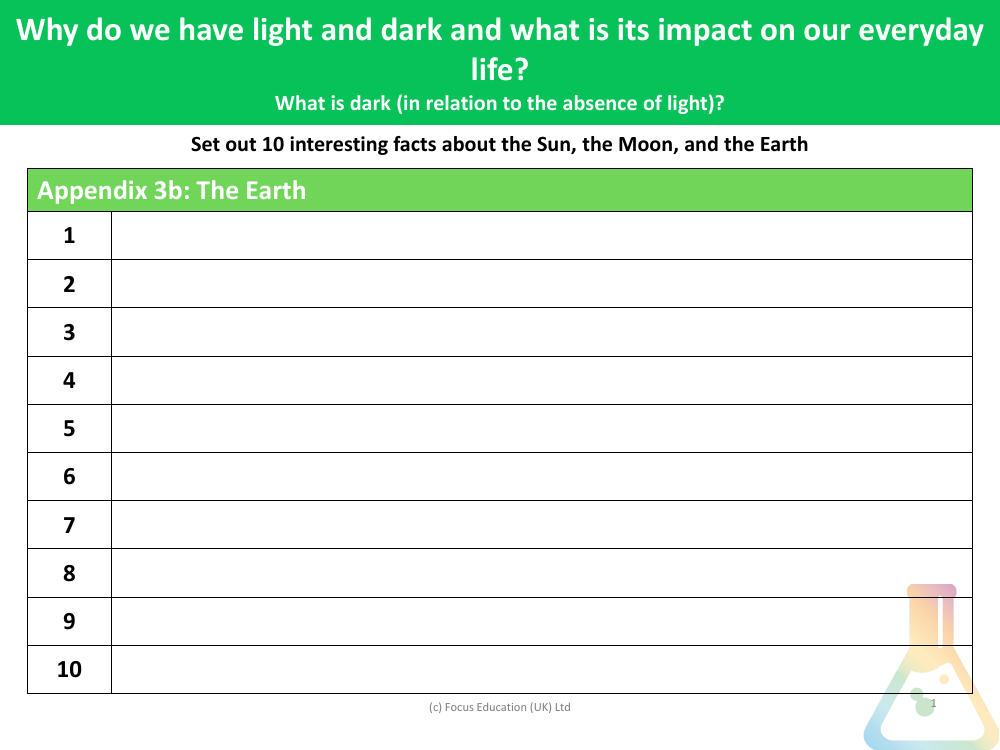10 Interesting facts about the Earth - Worksheet

Science Resource Description
The Earth, our home planet, is a subject of endless fascination and study, offering a wealth of intriguing facts that highlight its unique characteristics within our solar system. For instance, the Earth is the only known planet to support life, thanks to its perfect distance from the Sun, which allows for a hospitable climate and the presence of liquid water. It has a single natural satellite, the Moon, which influences the Earth's tides and has been pivotal in the development of the Earth's stable climate. The Earth's rotation on its axis leads to the cycle of day and night, which has shaped the rhythms of life and human activity throughout history.
Understanding the interplay of light and darkness is crucial to comprehending the Earth's daily cycle. The presence of light, emanating from the Sun, defines the day and is essential for the photosynthesis process in plants, which in turn supports life by producing oxygen and food. Darkness, on the other hand, occurs in the absence of sunlight and signals a time for rest and rejuvenation for many species, including humans. This natural alternation has profound effects on our everyday life, influencing everything from sleep patterns to the scheduling of our activities. The study of Earth's relationship with light and dark can also lead to discussions about the nature of darkness itself, often described as the mere absence of light, and its impact on the ecological and biological processes on our planet.







